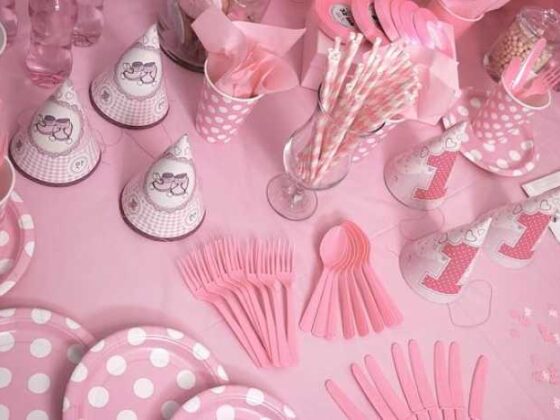Hey there, parents and caregivers! If you’re navigating the exciting (and sometimes messy) world of babyhood, you no just how quickly those tiny tots start soaking up everything around them. Wont to give your little one a head start in learning new skills without turning the process into a stressful chore? you’re in the right place! In this post,we’re sharing some super simple,fun,and effective baby training tips that make learning feel like playtime. Whether it’s crawling, talking, or those first steps, these easy ways will help your bundle of joy grow, explore, and shine—one giggle at a time!
Choosing the Right Learning Toys to Spark curiosity
When selecting toys that encourage your baby’s curiosity, think beyond just colorful objects. Opt for toys that engage multiple senses—textures, sounds, and shapes all help stimulate brain progress. Wooden blocks, soft rattles, and activity cubes are excellent choices that promote tactile learning while allowing your little one to explore at their own pace. Look for toys that encourage cause-and-effect understanding, like pop-up toys or stacking rings, which help build cognitive skills through playful experimentation.
It’s also great to include toys that grow with your child, adapting to their evolving skills. Here’s a fast guide to help you pick the perfect types:
| Type of Toy | Learning Benefit | Example |
|---|---|---|
| Cause & Effect | Logical thinking | Push-button music toys |
| Manipulative Toys | Fine motor skills | Stacking rings |
| Sensorial Toys | Sensory exploration | Textured balls |
| Imaginative Toys | Creativity | Shape sorters |
Remember, the best toys aren’t necessarily the most complex or expensive but ones that invite your child to discover, touch, and try again in a safe and welcoming environment.
Creating a Fun and Engaging Routine for Everyday Learning
Turning everyday moments into playful learning experiences not only sparks your baby’s curiosity but also builds a strong foundation for development.Start by weaving simple activities into your daily schedule that encourage exploration and discovery. For example, during diaper changes, name body parts or sing a silly song; at meal times, talk about colors and textures of the foods. Consistency is key, but keep things light and flexible so your little one stays excited and involved rather than overwhelmed.
Here’s a quick rundown of fun ways to keep learning alive throughout the day:
- Turn bath time into a splashy science lesson about floating and sinking.
- Use storytime for interactive questions—”Can you point to the cat?”
- Encourage movement with mini dance breaks to favorite tunes.
- Create a cozy corner with textured toys for sensory play.
| Daily Routine | Learning Focus | Fun Tip |
|---|---|---|
| Morning | Language Development | Silly wake-up songs |
| Afternoon | Motor Skills | Tummy time with colorful toys |
| Evening | Sensory Exploration | Gentle textured books |

Encouraging Communication with Simple Speech Games
One of the most effective ways to boost your baby’s language skills is by turning everyday moments into exciting speech adventures. Simple speech games like repeating sounds, naming objects, or even playful mimicry can ignite their curiosity and encourage them to vocalize more. Try incorporating games such as “Echo Me,” where you say a word or sound and let your baby try to copy it, or “What’s in the Box?” using toys or household items to prompt your little one to practice words in a playful context.These activities are not only fun but also build a strong foundation for early language development.
Consistency is key, so try to make these games part of your daily routine. Here’s a quick guide to help you get started:
- Use simple, clear words to keep it easy for your baby to imitate.
- Make it interactive by encouraging your baby to respond in any way they can, even with babbles or gestures.
- Keep sessions short — 5 to 10 minutes, multiple times a day keeps it engaging without tiring them out.
- Celebrate every attempt, as positive reinforcement motivates your little talker!
| Game | How to Play | Skill Focus |
|---|---|---|
| Echo Me | Repeat simple sounds and words | Imitation & Listening |
| What’s in the Box? | Name hidden objects | Vocabulary Building |
| Animal Sounds | Mimic animal noises together | Sound Recognition |
Turning Playtime into Brain Boosting Adventures
Transforming everyday play into a learning experience is easier than you think! Simple activities like stacking blocks, playing with colorful shapes, and singing nursery rhymes can spark curiosity and develop critical thinking skills. Try incorporating toys that encourage problem-solving and fine motor skills, such as puzzles or soft building sets. Remember, the goal is to make play feel like an exciting exploration rather than a lesson, keeping your little one engaged and eager to discover more.
- Use sensory toys: Textured balls, rattles, or fabric books help stimulate touch and sound recognition.
- Play peekaboo: This classic game teaches object permanence in a fun, interactive way.
- Introduce cause and effect: Push-buttons or pop-up toys show them how their actions create reactions.
- Encourage imitation: Mimicking sounds or gestures supports language and social development.
| Activity | Brain Skill Targeted | Age Range |
|---|---|---|
| Stacking Cups | Hand-eye Coordination | 6-12 months |
| Singing Songs | Language Development | 3-12 months |
| Peekaboo | Object Permanence | 4-10 months |
| Sensory Play | Sensory Processing | 0-12 months |
Q&A
Q&A: Baby Training Tips – Easy Ways to Help Your Little One Learn!
Q: When should I start “training” my baby?
A: Great question! Honestly, you can begin encouraging learning right from the start. Babies soak up information like little sponges from day one. Simple things like talking to them, making eye contact, and playing peek-a-boo all help build their brainpower early on.
Q: What are some easy activities to help my baby learn?
A: Keep it simple and fun! Singing songs, reading colorful picture books, tummy time, and playing with textured toys can all boost your baby’s senses and motor skills. Even just chatting with your baby about what you’re doing helps with language development.
Q: How can I make learning part of our daily routine?
A: Turn everyday moments into mini-lessons. When you’re changing diapers, name the body parts. At meal time, talk about colors and textures. Walks outside? Point out trees, birds, and the sky. Making learning a natural part of your day keeps it stress-free for both of you.
Q: What if my baby doesn’t seem interested or keeps fussing?
A: Babies have their moods, just like us! If they’re not into a certain activity, don’t force it. Try switching it up or coming back later. sometimes a little break or a cuddle can reset their mood—and yours!
Q: Are there any tools or toys you recommend?
A: Go for soft, colorful, and safe toys that stimulate the senses.Rattles, stacking cups, and soft books are great starters.Also, household items like wooden spoons or measuring cups can be surprisingly entertaining and educational.
Q: How important is praise during baby training?
A: Oh, super important! Babies love your attention and smiles. Cheer for their little wins and watch their confidence grow. Your positive vibes tell them “You’re doing great!”, which encourages them to keep exploring and learning.
Q: Can training help with sleep or behavior?
A: Definitely! establishing routines with gentle training around bedtime can help your baby feel secure, making sleep easier. Plus, learning simple cause-and-effect games can improve attention spans and mood.
Q: Any final tips for newbie parents?
A: Relax and enjoy the ride! baby training isn’t about perfection—it’s about connection. Follow your baby’s lead, celebrate small milestones, and remember that all those little moments add up to big growth.
Hope these Q&A’s make your baby training journey a little easier and way more fun. Happy learning, mama and papa!
Wrapping up
And there you have it—some simple, down-to-earth tips to help your little learner along the way! Remember, every baby is unique and picks up skills in their own time, so keep things fun, be patient, and celebrate those tiny victories. With a little consistency and lots of love, you’re setting the stage for your baby’s radiant, happy journey of discovery. happy training, mama and papa—your little superstar is already shining!










